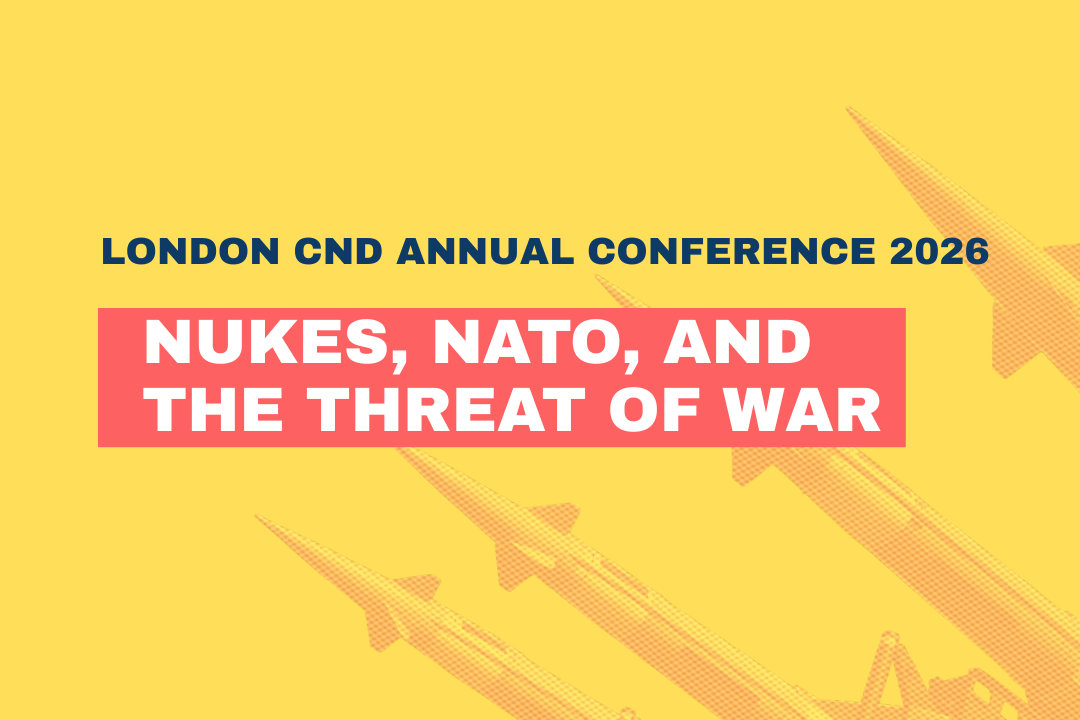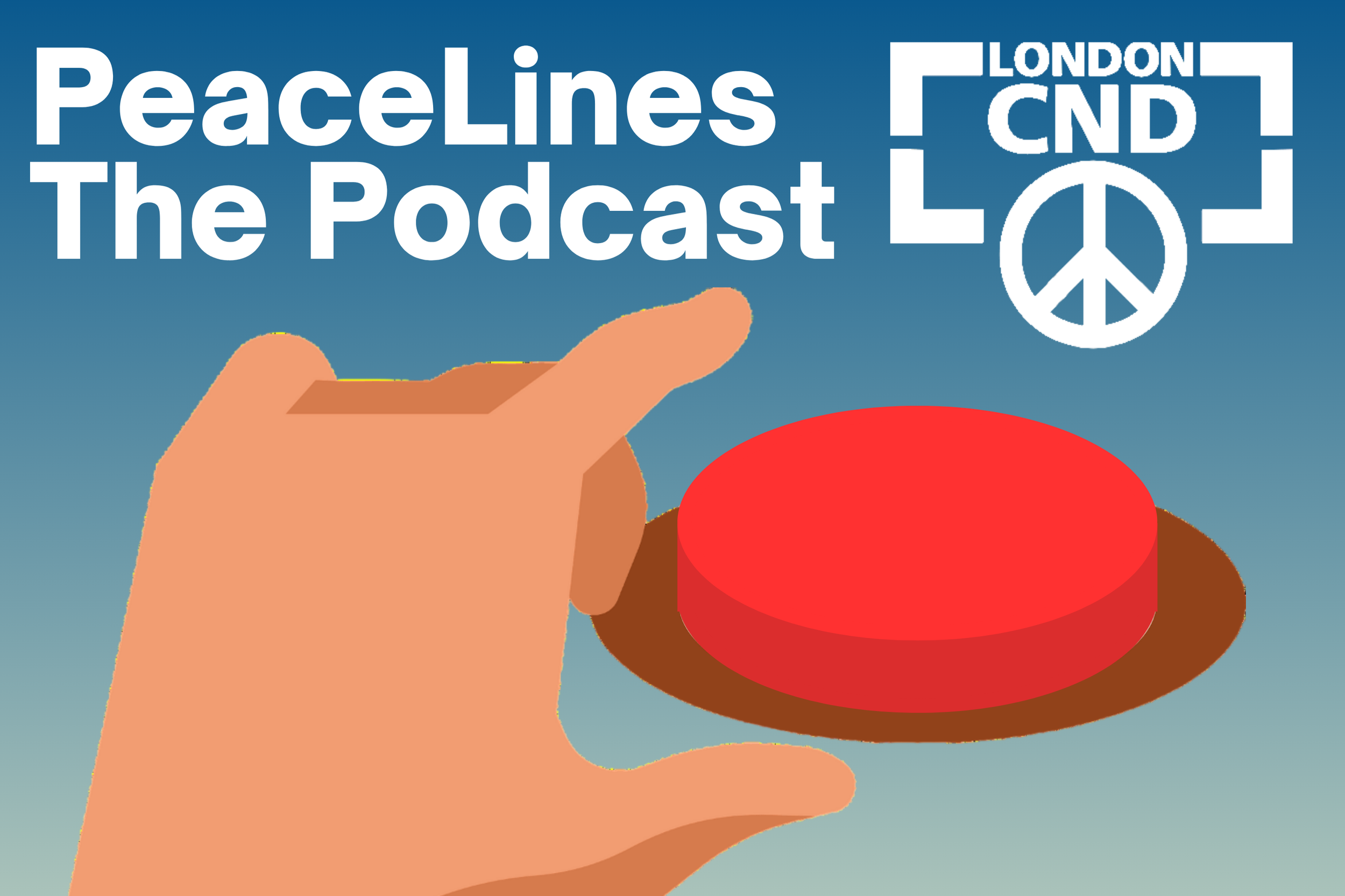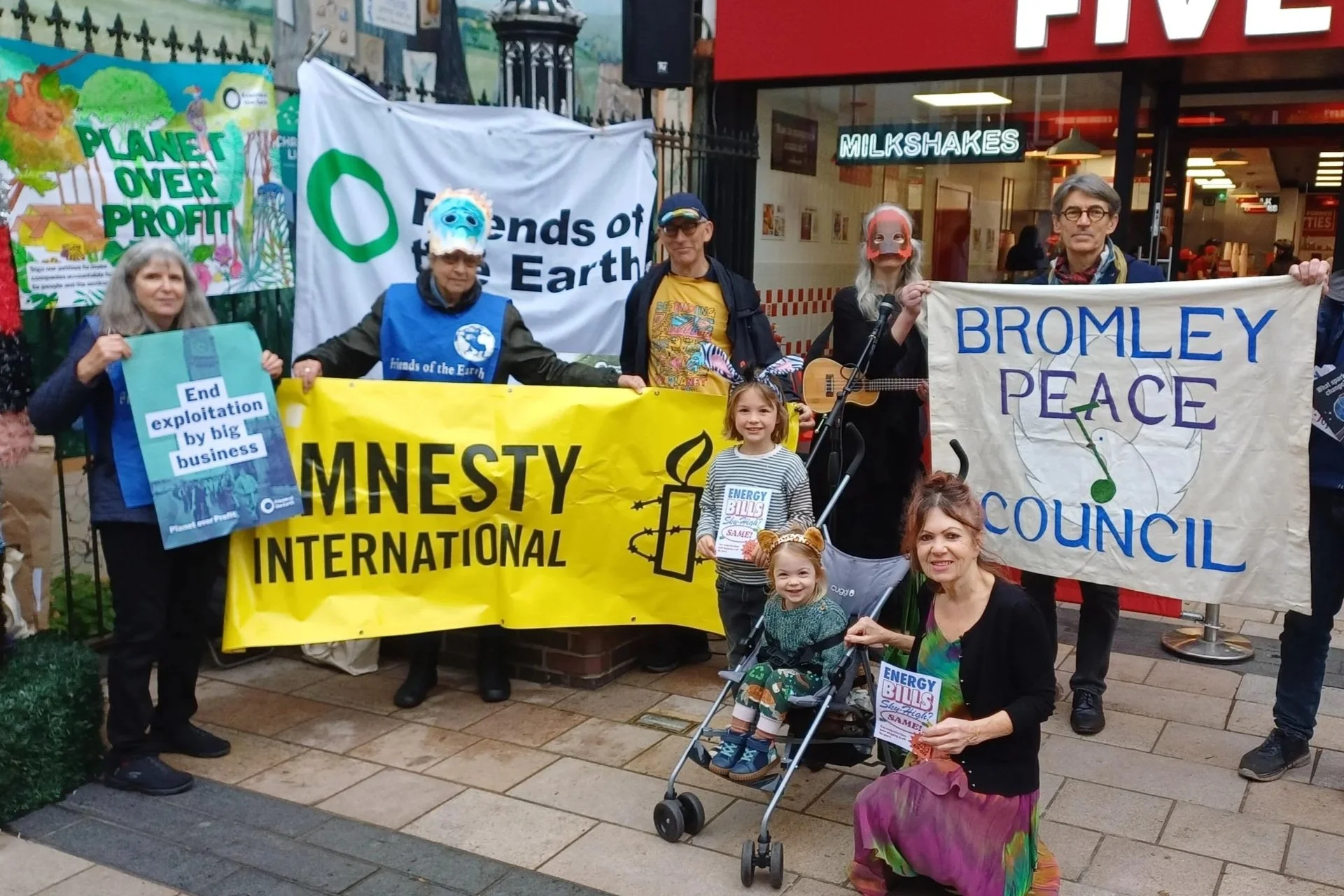This article was originally written for Labour Outlook by Christine Shawcroft
An intrepid group of peace campaigners totally repulsed a missile attack from Donald Trump, Kamala Harris and Joe Biden at Lakenheath airbase in Suffolk on 2nd November. Unfortunately, the missiles were cardboard and the American politicians (or crook in one case) were CND supporters with face masks on.
The dramatized battle, choreographed and presented by CND’s new general secretary, Sophie Bolt, was fun, but with a serious message: we are all in danger from the proposal to return US missiles to the Lakenheath airbase.
The rally outside RAF (more accurately, USAF) Lakenheath was well supported by London Region CND and local groups including Nottingham, Leicester, Norwich and elsewhere, as well as the Lakenheath Alliance for Peace. Local speakers explained that the noise from the jets at the base is deafening; people living in the vicinity can’t use their gardens or open their windows in the summer – and are even reluctant to let their children play outdoors!
Melissa Parke, Executive Director of the International Campaign to Abolish Nuclear Weapons (ICAN) travelled to Lakenheath from her home in Geneva, Switzerland, to join us. Focussing on nuclear dangers in Europe, she emphasised the need for peace in Ukraine. ICAN is the organisation that won the 2017 Nobel Peace Prize for its work promoting the Treaty on the Prohibition of Nuclear Weapons, adopted by the UN in July 2017.
Other excellent contributions included Kirsten Bayes Campaign Against Arms Trade, Green Party peer Jenny Jones and former Green MEP Catherine Rowett. Peter Burt from Nukewatch outlined the shameful history of nukes at Lakenheath, including some near-miss nuclear accidents. Bimal Khadka from MedAct, described the work of Don’t Bank on the Bomb UK, and played a harrowing soundtrack of what happens when a nuclear bomb is detonated.
We were told that the UK government spends billions every year on contracts to companies like Babcock International, Lockheed Martin, Rolls Royce and BAE systems – over the past five years, British spending on nuclear weapons rose by a staggering 43%, and the present government is pledged to raise it still further. The companies involved are also funded through investments made by banks and financial institutions. Your pension fund might be funding weapons of mass destruction.
Planes from Lakenheath have been involved in joint exercises with Israeli and Saudi air forces as well as being deployed in the Middle East as part of NATO forces. The F35 planes cost £58 million, and when flying costs £28,000 an hour. On a ‘normal’ day there are between 15-30 flights a day from the base, but during exercises and military interventions that number massively increases. Militarism is also very bad news for the climate. Around 6% of global greenhouse gases come directly from military activity. Nuclear weapons sites have contaminated land and water with radioactive waste which is lethal for at least 100,000 years.
Lakenheath Peace Alliance described the camp and its work, musicians and singers entertained us, and CND Vice Chair Carol Turner, concluded proceedings with a mercifully short speech on what was an overcast and drizzling day.
Finally, I noticed a sign on the gate saying that tobacco is prohibited on the base apart from in a few designated areas. Because, of course, tobacco is very bad for your health, but nuclear weapons will bring us peace and freedom!





